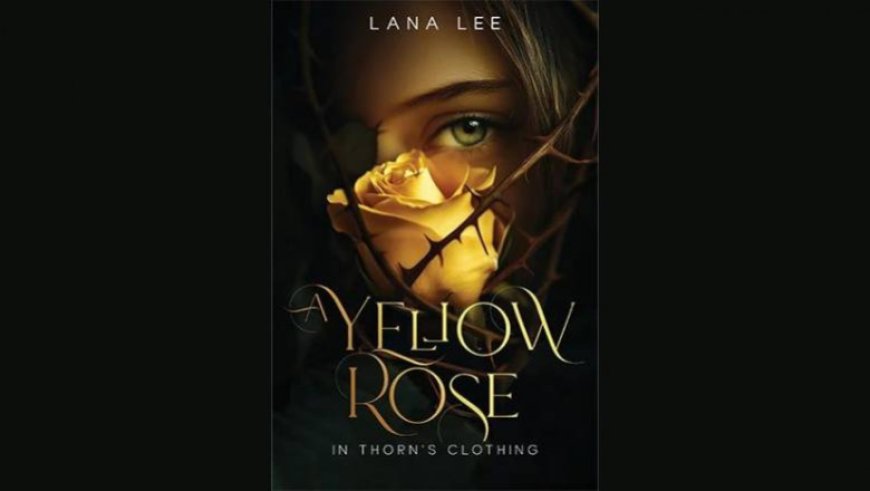Letters to the Past: The People We Should Have Left Behind

There are relationships that end loudly. Sometimes, with slammed doors and final words. There are some that drift, unspoken, into memory. And then there are the ones that never quite end at all. The ones kept alive in softer ways like old photos, unsent letters, names that still pause the breath when spoken aloud.
In A Yellow Rose in Thorns Clothing, Lana Lee writes of these in-between bonds. The emotional holdovers. The people she should have left behind but didnt.
Her book, stitched together with brutal honesty and unexpected softness, offers a rare glimpse into what happens when letting go becomes harder than holding on.
Contents
The Long Goodbye
The Unsent Letters
Words That Linger
Faith as a Refuge...and a Trap
What Gets Lost Along the Way
Choosing Distance Over Devotion
A Life Reclaimed
A Yellow Rose in Thorns Clothing
The Long Goodbye
Throughout her story, Lana acknowledges a recurring pattern: a magnetic pull toward people who offered little and took much. Once I got attracted to someone, I had a really hard time letting go, she writes. There is no bravado in the admission. Just truth. One of the most telling examples is her connection with Daniel, a former crush with whom there was no real future. And yet, she gave him her cherished Choctaw pendant, a family heirloom from her grandparents. That is one thing I always regretted later, she reflects.
What she mourns is not just the gift but the time, the energy, the emotional real estate she gave away too freely.
The Unsent Letters
After her first divorce, Lana found herself still reaching backward. Her diary revealed a habit of writing letters that were written not just to former lovers but to friends and acquaintances from chapters long closed. According to my diary, I wrote many letters after my move to Ft. Worth, including to Nancy, Daniel, and even Jerry, she notes with some surprise. I thought I always hated writing letters.
But the writing wasnt about correspondence. It was about connection. Even symbolic ones. The act of putting words to paper became a way of clinging, a refusal to let the past slip too far away.
Words That Linger
Some past relationships leave wounds along with memories. In one particularly cruel exchange, her ex-husband told her: Youre not pretty, and you dont have a good personality. Men will only be after you for one thing.
These words stayed with her, not as truths, but as shadows that kept following her. Echoes of someone elses insecurities pressed onto her skin. In the book, she pushes back: Spoiler alert. I wasnt THAT stupid. And yet, the line lingers. It stays not because it defines her but because it so clearly marked the divide between who she was and who she would become.
Faith as a Refuge...and a Trap
In the wake of heartbreak, Lana turned to faith. A Southern Baptist church became her anchor. She immersed herself fullyspiritually, emotionally, financially. I tithed 10% not of my net income but of my gross part-time income while I lived on hot dogs and Kraft macaroni and cheese, she writes.
She did everything right. And yet, the acceptance she sought was never fully given. No matter what I did or how hard I tried, she realized, I was never going to be good enough. That revelation didnt arrive in a dramatic moment of reckoning. It came gradually, in the space between obligation and silence.
What Gets Lost Along the Way
There is a softness in Lanas voice when she reflects on time wasted. I cant say Im sorry about that, she admits. Im just sorry I wasted so much of my precious time on them. It is not bitterness that underpins this statement. It is grief. Not for the people themselves but for the woman she might have become sooner had she known when to walk away.
In her telling, the past is not a villain but a weight. One she eventually learned to set down.
Choosing Distance Over Devotion
To hold on is easy. To rewrite memories until they fit the story we wanted. But Lana Lees story is a reminder that true growth requires distance. Sometimes, the most loving thing a person can do for themselves is to stop looking back. To stop waiting for apologies or clarity. To stop writing letters.
There is courage in closure, even when it comes slowly and quietly.
A Life Reclaimed
In the end, A Yellow Rose in Thorns Clothing is not a book about loss. It is a book about recognition. The recognition that not all love is good love. That not every memory is meant to be kept warm. And that sometimes, the kindest goodbye is the one never spoken aloud but deeply felt.
Letting go is not forgetting. It is remembering differently. It is learning to honor what was while making space for what could be.
A Yellow Rose in Thorns Clothing
Im not famous. Im not a celebrity. Im a normal person like most of you. This book is a record of my memories and experiences from a young child until I was thirty-seven and met my third husband in between. I faced challenges, made some questionable choices, suffered the consequences, and persevered. Im still here to talk about it. I felt like it was important to share this story as Im sure many people can relate. I hope to provide encouragement, empathy, and support. None of us are perfect. Weve all made our mistakes. We may not be forgiven by the general public, but most importantly, we have to forgive ourselves. It is never too late to change the path that we are on, and it is never time to give up. I hope that you find inspiration from this book.








































